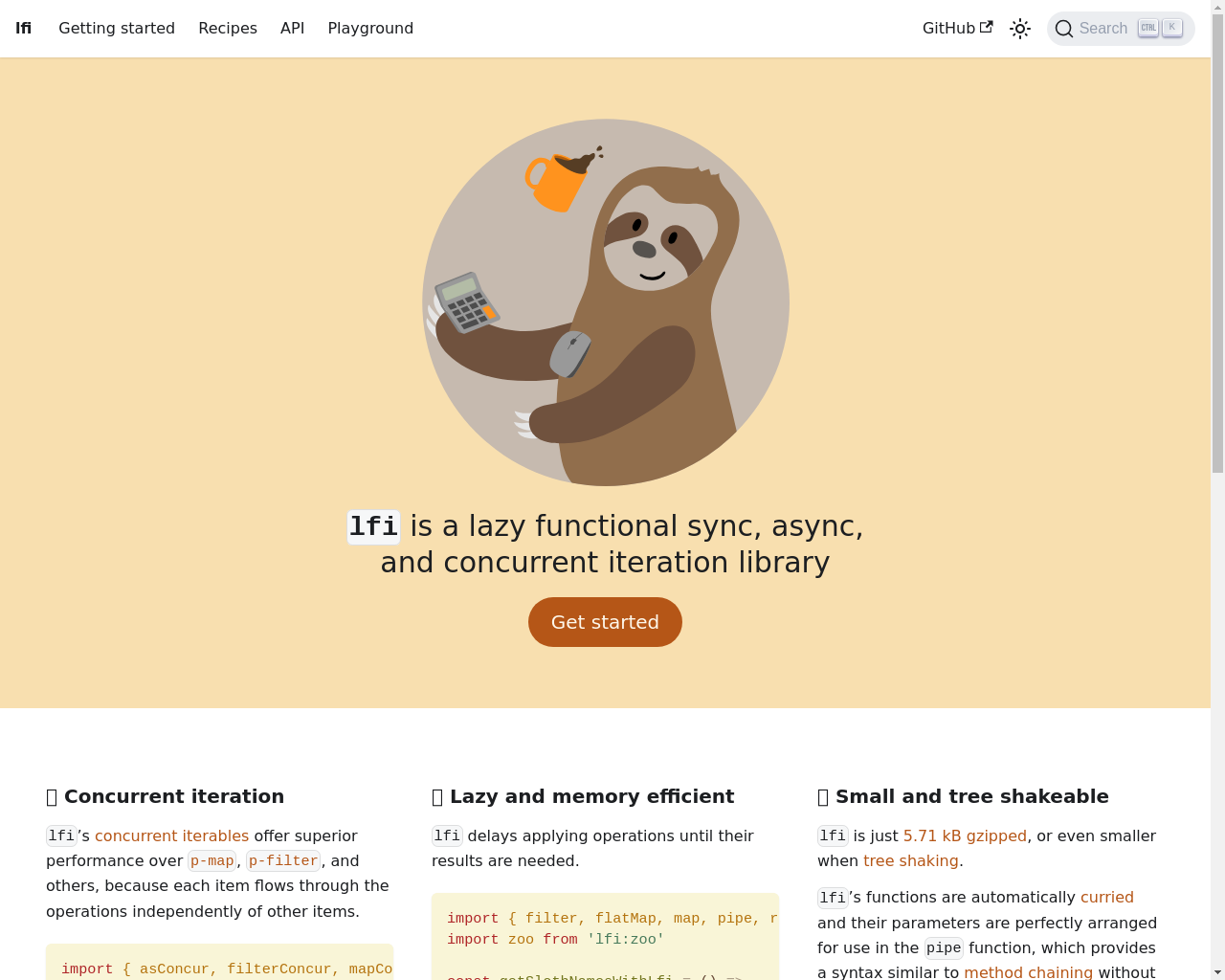

Highlight 1
The library supports multiple types of iteration (sync, sequential async, and concurrent async), making it versatile for different programming scenarios.
Highlight 2
Its composable design around a few core concepts enhances code readability and maintainability.
Highlight 3
The inclusion of a documentation website with a playground encourages users to explore and experiment with the library easily.

Improvement 1
The library could benefit from more comprehensive examples and use cases in its documentation to cater to a wider audience.
Improvement 2
Enhancing community support channels, such as forums or Discord servers, could improve user engagement and help with troubleshooting.
Improvement 3
Adding a performance benchmark comparison with similar libraries could help prospective users make informed decisions about adopting it.
Product Functionality
Consider adding a section for user-contributed examples and extensions of the library to enrich the content and utility for new users.
UI & UX
Improving the documentation site's search functionality could help users find relevant sections or examples more quickly.
SEO or Marketing
Implementing a blog section that discusses use cases, tutorials, or best practices related to functional programming and iterations could attract more users and improve organic traffic.
MultiLanguage Support
Introducing multi-language support in the documentation could make the library accessible to a wider global audience.
- 1
What is LFI.dev?
LFI.dev is a lazy functional iteration library for JavaScript and TypeScript that enables efficient handling of synchronous and asynchronous iterations.
- 2
How can I use LFI.dev in my projects?
You can include LFI.dev in your projects through npm or yarn and start using its iteration functions and concepts to streamline your coding workflow.
- 3
Is LFI.dev suitable for large applications?
Yes, LFI.dev is designed to be efficient and is tree-shakeable, making it suitable for large applications where minimizing bundle size is important.
